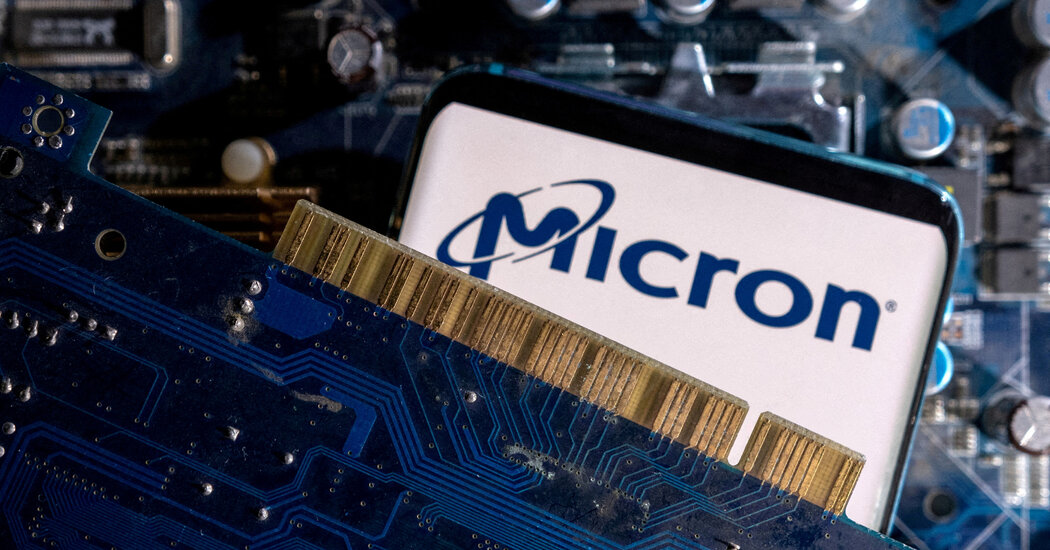On Sunday, Beijing urged Chinese companies that handle sensitive information to stop buying products from Micron Technology, the US-based maker of memory chips for phones, computers and other electronics. Many analysts saw the move as retaliation for Washington’s efforts to bar China from high-end chips.
In a statement on its official social media page, the Cyberspace Administration of China said that a cybersecurity review found the chipmaker’s products to pose “relatively serious cybersecurity issues.” The problems could “seriously jeopardize the supply chain of China’s critical information infrastructure” and threaten national security, it said.
China’s action is the latest salvo in an economic dispute between Beijing and Washington that is reshaping the fabric of a sprawling global microchip industry. The decision to ban Micron from selling its chips to key companies could impact China’s supply chains as Micron’s Chinese customers seek to replace U.S. memory chips with homegrown or Korean versions. South Korean chipmakers like Samsung and SK Hynix are Micron’s competitors and are already doing significant business with China.
Beijing initiated a cybersecurity review of Micron in late March as part of what it calls a “normal regulatory action.” The announcement came after Washington imposed restrictions on China’s semiconductor industry in October. Micron said at the time that it was “fully cooperating” with the investigation and that its China business was operating normally.
In a statement, the company said it was “evaluating the conclusion and considering our next steps,” adding that it “continued to hold discussions with the Chinese authorities.”
Since the announcement in March, China has been waging an all-out campaign to shore up its domestic chip industry. Beijing has spent billions of dollars in self-reliance efforts, and Chinese companies across the supply chain have moved to replace Western chips and parts.
Chinese authorities made few references to what they had discovered and what posed serious risks. They also provided little information about what is required of companies in a cybersecurity audit. But Graham Webster, editor-in-chief of the DigiChina project at Stanford University’s Cyber Policy Center, said risks include the possibility of further sanctions by Washington that could cut off key Chinese companies from Micron’s memory chips.
“Supply chain security involves the risk of a foreign government disrupting supplies, which the US government has done in a variety of ways with other semiconductors,” Mr. Webster said. He added that China’s decision may have been in part a “risk mitigation measure to avoid further reliance on supplies that the US may cut.”
Washington has urged South Korean officials to block its chipmakers from filling the gap in the market if Micron can’t sell its chips to China, the Financial Times reported in April.
China passed a cybersecurity law in 2016 that laid out rules to protect what it called “critical information infrastructure.” These are technology systems in sectors such as telecoms, transport and defense that Chinese regulators believe would be vulnerable if things went wrong or data was lost.
Based in Boise, Idaho, Micron built its first factory in China in 2007. In recent years, as relations between the United States and China cooled, the company began downsizing its operations, reducing the number of Chinese employees and closing some operations. In April, the company employed around 3,000 people in Shanghai, Beijing and Shenzhen.
The impact of Sunday’s decision on the company could be significant. In 2022, Micron reported sales of $3.3 billion in China, about 11 percent of its annual global sales of $30.8 billion. It was unclear how badly these sales in China would be affected by the government’s measures.

